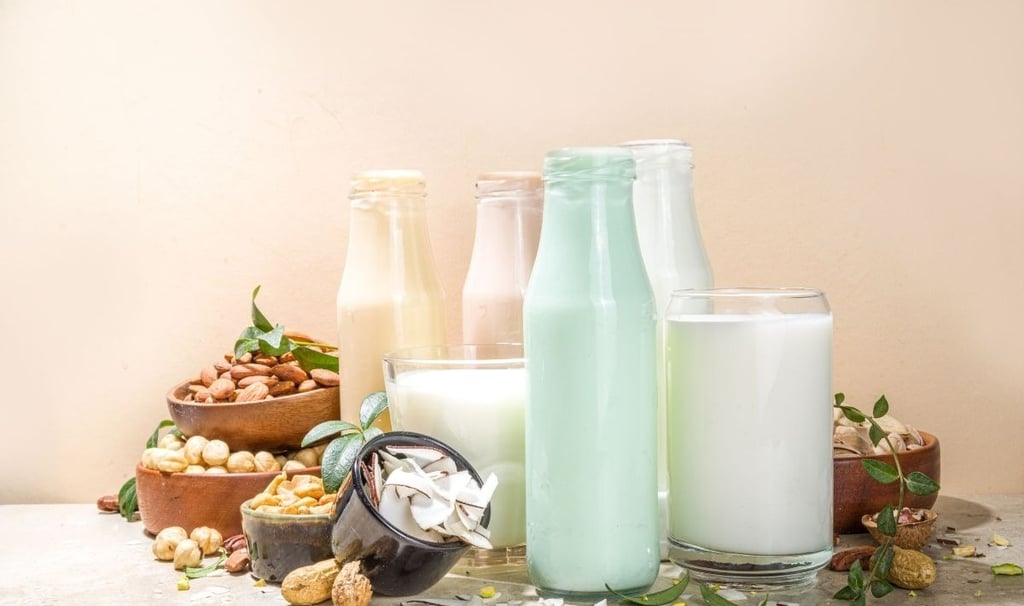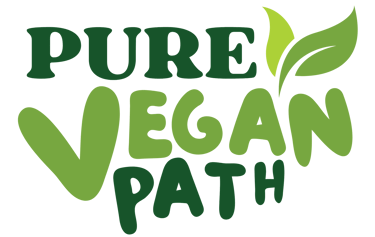Are Plant-Based Milks Healthier or Less Nutritious Than Cow’s Milk?
Discover the health benefits, nutritional differences, and environmental impact of plant-based milks compared to cow’s milk. Which is best for you?
11/18/20244 min read


Plant-based milks have become popular as people explore dairy-free alternatives for health, environmental, or ethical reasons.
But are they healthier or less nutritious than cow’s milk? The answer depends on nutritional content, health needs, and environmental impact. Below, we examine the disadvantages of plant-based milk, their health benefits, and which options are best for sustainability and personal wellness.
Nutritional Comparison: Plant-Based Milk vs. Cow’s Milk
Cow's milk provides protein, calcium, and vitamin B12, but factors like lactose intolerance and digestive health can influence the body's ability to absorb these nutrients effectively. It also contains hormones, cholesterol and saturated fats. In contrast, plant-based milks vary widely:
Almond milk is low in calories but lacks protein.
Soy milk offers comparable protein levels to cow’s milk, with no cholesterol.
Oat milk provides dietary fiber and beta-glucans that support heart health.
Coconut milk is high in saturated fat but lower in protein and carbs.
Many plant-based milks are fortified with calcium, vitamin D, and other nutrients to match or exceed cow’s milk in nutritional value. However, not all are fortified, so label-checking is crucial.
Health Benefits of Plant-Based Milk
Heart Health
Plant-based milks are cholesterol-free and often lower in saturated fat compared to cow’s milk. Almond, soy, and flaxseed milks contain heart-healthy unsaturated fats that support cardiovascular wellness.Digestive Support
Many plant-based milks are lactose-free and easier to digest for those with lactose intolerance. Additionally, options like oat milk contain fiber, aiding digestion and gut health.Weight Management
Lower-calorie plant milks, such as almond and cashew milk, can assist in maintaining or reducing weight. Unsweetened versions help avoid added sugars, which can hinder weight goals.Anti-Inflammatory Properties
Phytonutrients in soy, almond, and oat milks have anti-inflammatory effects, potentially reducing the risk of chronic diseases.
Disadvantages of Plant-Based Milk
Protein Deficiency
Most plant-based milks, except soy and pea milk, contain significantly less protein than cow’s milk. For individuals relying on milk as a protein source, this can be a limitation.Added Sugars
Flavored or sweetened varieties often contain high amounts of added sugars. Unsweetened options are a healthier choice.Allergens
Nut milks may not be suitable for those with tree nut allergies, limiting choices for some consumers.


Which Plant-Based Milk Is Best for the Environment?
Plant-based milks generally have a smaller environmental footprint than dairy milk, requiring less water and generating fewer greenhouse gas emissions.
Among them:
Almond milk: High water usage for almond farming but low emissions.
Oat milk: Low water usage and carbon footprint, making it one of the most sustainable choices.
Soy milk: Moderate water usage but concerns over deforestation in soy farming.
For those prioritizing environmental impact, oat milk often emerges as the most eco-friendly option.
Choosing the Best Plant-Based Milk for Health
The healthiest choice depends on individual dietary needs:
For high protein, opt for soy or pea milk.
For low-calorie options, choose almond or cashew milk.
For fiber, go with oat milk.
For keto diets, coconut milk fits well due to its low carb content.
Always select unsweetened, fortified versions to maximize health benefits while avoiding unnecessary sugars.
Why Making Your Own Plant-Based Milk is Better
Making your own plant-based milk at home is a fantastic way to ensure quality, reduce waste, and save money. While store-bought options are convenient, they often contain additives like gums, emulsifiers, and preservatives. Homemade alternatives are fresher, free from unnecessary additives, and can be tailored to your taste preferences. Using a dedicated plant-based milk maker or a blender ensures that the process is simple and efficient.
Dedicated Plant-Based Milk Makers vs. Blenders
Milk Makers: Devices like the Almond Cow or Milky Plant are specifically designed for plant-based milk, requiring minimal preparation. They automate the process, separating the pulp and liquid, making cleanup easier. These machines are efficient and often more sustainable since they reduce packaging waste and allow you to repurpose leftover pulp into other recipes like cookies or granola.
High-speed blenders, such as Vitamix or Blendtec, are versatile and suitable for various kitchen tasks, including making plant-based milk. However, they require additional steps, like straining the mixture through a nut milk bag or cheesecloth. This method provides more control over texture but can be time-intensive.
Recipes for Popular Nut-Based Milks
1. Almond Milk
Ingredients:
1 cup organic raw almonds (soaked overnight)
3-4 cups filtered water
2 dates (optional, for sweetness)
A pinch of sea salt
Instructions:
Blend the soaked almonds with water in a high-speed blender for 1-2 minutes.
Strain using a nut milk bag or a fine mesh sieve.
Add dates and salt to the strained liquid, then blend again.
Store in a glass bottle in the refrigerator for up to 3 days.
2. Cashew Milk
Ingredients:
1 cup organic raw cashews (soaked for 2-4 hours)
4 cups filtered water
1 tsp vanilla extract (optional)
Instructions:
Blend cashews and water until smooth (no straining needed).
Add vanilla if desired, and blend again.
Chill and serve.
3. Oat Milk
Ingredients:
1 cup organic rolled oats
4 cups filtered water
1-2 tsp maple syrup (optional)
Instructions:
Blend oats and water for 30-45 seconds to avoid a slimy texture.
Strain through a nut milk bag or a fine sieve.
Add maple syrup for sweetness, if desired.
4. Coconut Milk
Ingredients:
1 cup unsweetened shredded coconut
4 cups hot water
Instructions:
Blend coconut and hot water until smooth.
Strain the mixture for a creamy texture.
Use immediately or refrigerate for up to 3 days.
Sustainability Benefits
Opting for organic ingredients ensures that your homemade milk is free from harmful pesticides, promoting better health and supporting eco-friendly farming. Repurposing leftover pulp minimizes food waste, making this process both sustainable and resourceful. Plant-based milk is not only a healthier alternative but also a rewarding way to contribute to a greener planet. With the right tools and organic ingredients, you can enjoy fresh, delicious milk tailored to your needs!
Conclusion
Plant-based milks offer a versatile, nutritious alternative to cow’s milk, with unique benefits and drawbacks. They are well-suited for those with dietary restrictions, environmental concerns, or a desire for variety. By understanding their nutritional profiles, health impacts, and environmental footprint, you can select the best option for your lifestyle.
Pure Vegan Path
Explore plant-based living and delicious recipes.
Contact
Newsletter
info@pureveganpath.com
123-456-7890
© 2024. All rights reserved.
